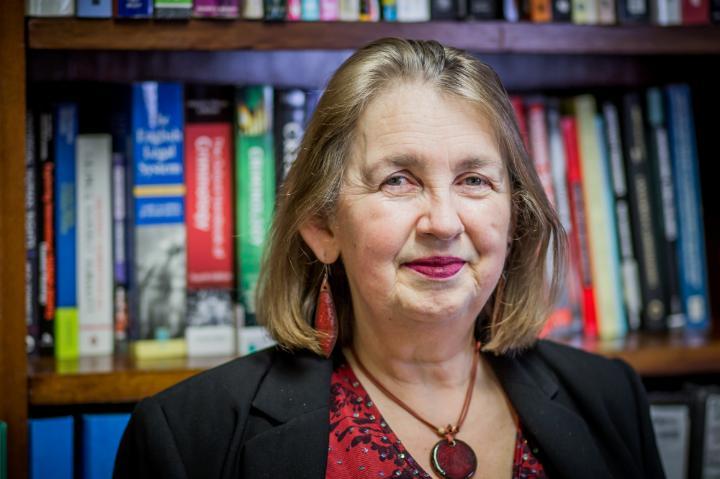Changing police attitudes and practices around violence against women and girls in Brazil, and beyond
Academic research and partnerships with local organisations can transform the lives of ordinary people. Professor Fiona Macaulay's work on improving police understanding of violence against women and girls in Brazil is changing how police in that country are tackling the problem, through improved training.
Since 2005, Professor Macaulay, from the University of Bradford's Department of Peace Studies and International Development, has focussed much of her work on challenging institutional attitudes to violence against women in Latin America. She has worked with numerous organisations, including the police, to help them better understand how to deal with domestic violence and other forms of gender-based violence.
She says: “Brazil has a very high level of violence. It also has a high rate of domestic violence against women and until 2006, there was no specific law to address this.”
The Maria da Penha Law defined the crime of domestic violence against women for the first time and resulted in a number of policy responses, such as special police patrols, electronic tagging of offenders and special courts for domestic violence.
However, she says police still needed to train their officers better in how to handle domestic violence situations. In partnership with the Brazilian Forum on Public Safety, Professor Macaulay wrote a 120-page training manual (in Portuguese, in which she is fluent) on gender-based violence for use by Brazilian police instructors to use in police academies.

Professor Fiona Macaulay
The manual was developed and tested with police across the country over three years. Since the launch of the manual in 2020 she has trained hundreds of officers across every state in Brazil in how to use the manual. Over 70% said they intended to use this approach in how they delivered training.
She says: “Developing this 'train the trainers manual' has been informed by my partnership with the Brazilian Forum on Public Security and with the many police officers who are determined to improve the service they offer. The appreciative enquiry approach taken by my training manual is an excellent tool for police to analyse what they are getting right, and where they need to improve.
“Around 2,000 Brazilian women are murdered every year in domestic violence-related incidents and it is a priority for police to reduce this number. Women will only report and seek protection from police if they trust them to act swiftly, appropriately and effectively. As more specialist officers and ‘beat cops’ receive training, so their response to female victims improves, reporting rises, protection measures can be put in place, and women no longer fear being killed by their ex-partners. The data already shows a drop in lethal domestic violence against women.”
This manual has been informed by my partnership with the Brazilian Forum on Public Security and with the many police officers who are determined to improve the service they offer. The appreciative enquiry approach taken by my training manual is an excellent tool for police to analyse what they are getting right, and where they need to improve.
Professor Fiona Macaulay
The take up by law enforcement officials has been excellent. In Bahia, the manual is used to train the military police’s domestic violence patrols in 18 cities, and is being integrated into basic training for all officers. In Mato Grosso state, the local Network Association for Tackling Domestic Violence Against Women is using the manual to train 200 police officers and other stakeholders supporting victims of domestic violence.
The state of Rio Grande do Sul adopted the manual for use in basic training of all new recruits to the military police, who are generally the first responders in cases of domestic violence. The first cohort of 460 officers to be trained, in 2021, were overwhelmingly positive.
The Deputy Police Chief in the 4th Women’s Police Station, Pernambuco State, said: “The format of the training manual improved my own professional performance... Putting into practice the techniques and tools contained in the manual enabled our staff to get better results with members of the public who reported incidents to us, and, in my view, enabled positive changes in how we dealt with those women who had been victims of violence.”
A version of the manual is also being used in other countries. Humanitarian organisation Plan International commissioned Professor Macaulay to produce a shorter version for their Safer Cities for Girls programme, which is used to train local police and transport officials in preventing sexual harassment of girls. It is currently in use in cities in India, Vietnam, Egypt, Uganda, Kenya, Peru, Paraguay, Philippines, Solomon Islands, Belgium and Spain.
Find out more
As part of our Research in Conversation video series, Dr Fiona Macaulay discusses her research into gender-based violence in Brazil and the impact her work has had training Police forces in better supporting survivors of gender-based violence, with Professor Owen Greene.
